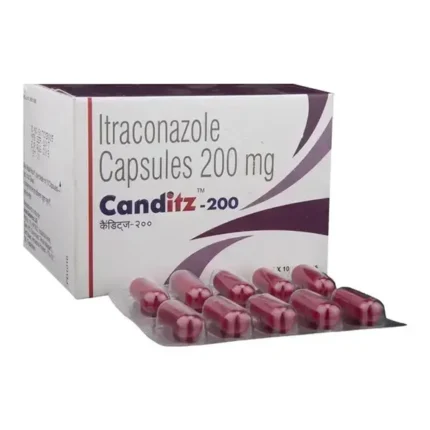Allergy: Causes, Symptoms, Treatments & Prevention – A Complete Guide
Allergies affect millions of people worldwide and range from mild sneezing and itching to life-threatening anaphylaxis. Whether you’re dealing with seasonal allergies, food sensitivities, or skin reactions, understanding how allergies work is key to managing them effectively.
In this comprehensive guide, we’ll explore everything you need to know about allergies, including types, causes, symptoms, diagnosis, treatment options, and prevention strategies.
Alerid 10 Mg Tablets (Cetirizine)
Price range: $10.50 through $81.00Arzep 10 ml Nasal Spray (Azelastine)
Price range: $21.00 through $80.00Atarax 10 Mg Tablets (Hydroxyzine)
Price range: $15.00 through $60.00Atarax 25 Mg Injection (Hydroxyzine)
Price range: $12.00 through $38.00Atarax 25 Mg Tablets (Hydroxyzine)
Price range: $16.50 through $144.00Atarax 50 Mg Tablets (Hydroxyzine)
Price range: $30.00 through $216.00Atarax Drops 15 ml (Hydroxyzine)
Price range: $8.00 through $25.00Canditz 200 mg Capsules (Itraconazole)
Price range: $36.00 through $180.00Fluka 150 Mg (Fluconazole)
Price range: $50.00 through $160.00What is an Allergy?
An allergy is an overreaction of the immune system to substances that are usually harmless to most people. These substances are called allergens. When an allergic person is exposed to an allergen, their body releases chemicals like histamine, leading to various symptoms.
Common Types of Allergies
1. Seasonal Allergies (Hay Fever)
Caused by pollen from trees, grass, or weeds. Also known as allergic rhinitis.
Symptoms:
-
Sneezing
-
Runny or stuffy nose
-
Itchy eyes, nose, or throat
-
Watery eyes
2. Food Allergies
Triggered by foods such as peanuts, milk, eggs, shellfish, soy, and wheat.
Symptoms:
-
Hives
-
Swelling (especially of the face and throat)
-
Abdominal pain, vomiting
-
Anaphylaxis (severe cases)
3. Skin Allergies
Includes eczema (atopic dermatitis), contact dermatitis, and urticaria (hives).
Triggers:
-
Soaps, lotions, detergents
-
Plants like poison ivy
-
Nickel or latex
4. Drug Allergies
Reactions to medications like penicillin, aspirin, or sulfa drugs.
Symptoms:
-
Rash, hives
-
Fever
-
Swelling
-
Breathing difficulty
5. Insect Sting Allergies
Bees, wasps, or fire ants can trigger severe reactions in some individuals.
6. Mold, Dust Mite, and Pet Dander Allergies
Common indoor allergens that can trigger asthma-like symptoms.
What Causes Allergies?
Allergies occur when the immune system mistakenly identifies a harmless substance as a threat and reacts by producing IgE antibodies. The next time you're exposed, these antibodies signal the immune system to release histamine and other chemicals.
Common Allergens:
-
Pollen
-
Dust mites
-
Mold spores
-
Animal dander
-
Foods (e.g., peanuts, dairy, shellfish)
-
Insect venom
-
Medications
-
Latex
Allergy Symptoms
Symptoms can vary depending on the allergen and the individual.
Mild to Moderate Symptoms:
-
Sneezing, coughing
-
Runny or blocked nose
-
Itchy eyes, nose, or skin
-
Rashes or hives
-
Nausea or vomiting
Severe Symptoms (Anaphylaxis):
-
Swelling of the throat and tongue
-
Difficulty breathing
-
Drop in blood pressure
-
Rapid pulse
-
Loss of consciousness
Allergy Treatment Options
1. Avoidance
The most effective way to prevent allergic reactions is to identify and avoid triggers.
2. Medications
-
Antihistamines (e.g., Loratadine, Cetirizine)
-
Decongestants (e.g., Pseudoephedrine)
-
Corticosteroids (nasal sprays, creams)
-
Leukotriene inhibitors (e.g., Montelukast)
-
Epinephrine auto-injectors (e.g., EpiPen) for anaphylaxis
3. Immunotherapy (Allergy Shots)
Gradual exposure to allergens to build immunity.
4. Biologic Therapies
For severe cases (e.g., asthma related to allergies), monoclonal antibodies like omalizumab may be prescribed.
FAQs About Allergies
1. Are allergies genetic?
Yes, they often run in families.
2. Can allergies be cured?
Not usually, but they can be controlled with treatment.
3. Are children more prone to allergies?
Yes, but some children outgrow allergies as they age.
4. Is it safe to exercise with allergies?
Yes, but avoid high pollen environments and manage symptoms beforehand.
Conclusion
Allergies may be common, but they are not to be taken lightly. With proper awareness, diagnosis, and treatment, allergic individuals can prevent serious complications and lead full, active lives. Always work closely with a healthcare provider or allergist to customize your treatment plan.










